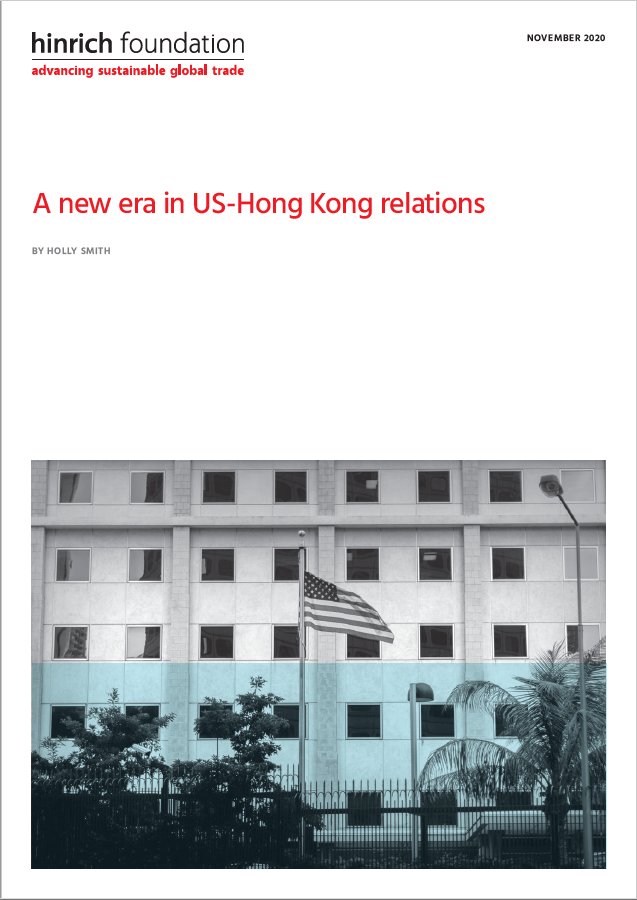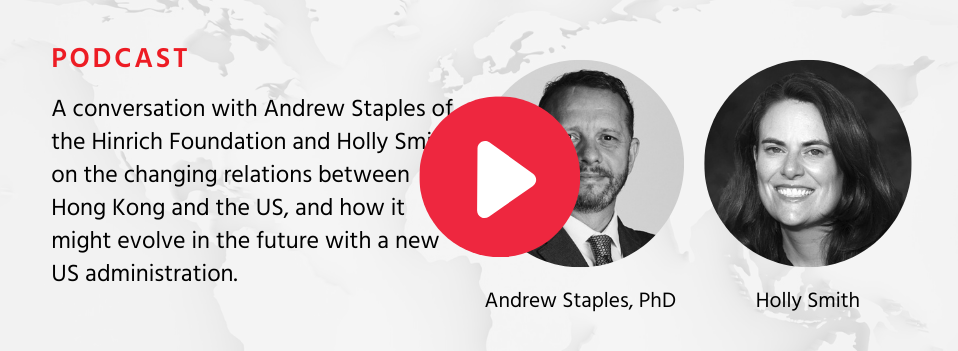Published 05 November 2020
US Secretary of State Mike Pompeo declared that Hong Kong is no longer autonomous from mainland China. This article explores recent changes in US-Hong Kong relations, additional actions that the new US administration could take and their implications for Hong Kong’s business environment and for Hong Kong’s role as a global financial center.
2020, a year of terrible superlatives, has not spared US-Hong Kong relations. After the US Secretary of State declared that Hong Kong was no longer autonomous from mainland China for purposes of US law, President Trump signed the Hong Kong Autonomy Act and issued an Executive Order (EO) in July directing policy and legal shifts in four key areas.
Given the pervasive negative sentiment toward China among Washington officials, the new administration is unlikely to reverse its policy course any time soon and US-Hong Kong relations will likely remain strained for the foreseeable future.
As we enter a new era of US-Hong Kong relations, how will Hong Kong's business environment and role as a global financial center evolve?
Listen to a podcast featuring Hinrich Foundation Director of Research and Outreach Andrew Staples and Holly Smith, as Smith summarizes the findings of her paper and the possible differences in the US's approach in relation to Hong Kong under a Biden administration.
Also read Holly Smith's article on Why Hong Kong's autonomy is important for trade.
© The Hinrich Foundation. See our website Terms and conditions for our copyright and reprint policy. All statements of fact and the views, conclusions and recommendations expressed in this publication are the sole responsibility of the author(s).








